HOME
The following material is re posted from the PRINCE RUPERT website
PRINCE RUPERT
"Where only hints are given, quiet meditation on the truths hinted at will cause their outlines to become visible, and the clearer light obtained by continued meditation will gradually show them more fully.
For meditation quiets the lower mind, ever engaged in thinking about external objects, and when the lower mind is tranquil then only can it be illuminated by the Spirit.
It's the dark light inside all things. Confide in your SELF, the answer is within YOU - learn the truth that IS YOU.
Ask yourself for guidance and allow yourself to be guided. Find peace through reason...then find that which IS beyond - that's you're answer :-)
Know Yourself.
Their in lie the answers.
Infinite tea, your description of dark light intrigues me. I have found a flame of pure light to reside in all things, but this little flame is smothered by seeds/clouds of darkness that surround it (I wonder if this is your dark light?). The trick is learning to find the little flame inside and giving it breathing room to grow and balance the darkness.
1977
You would know it if your kundalini rose to you throat or above.
In the KUNDALINI experience, a bolt of electromagnetic energy bursts into an individual’s lower spine and starts a process which is biological that causes a stream of a reproductive secretion to flow up through the spinal cord into the brain.
As stated, this secretion streams up the central canal (spinal cord) as if a powerful suction were applied from the head to the nerve lining at the space below the navel and the plexus located between the reproductive organ and the anus. This activity primarily involves the brain, nervous system, and reproductive system.
This upward flow of radiant energy is composed of fine, biochemical reproductive seeds that enter the brain and nerve centers of all the vital organs, and appear in the mind’s eye as an internal luminosity. Physically, it is felt as an extremely pleasurable sensation that might be associated with the erotic flow of reproductive energy.
The Secret of the Golden Flower, an ancient Chinese book of life, leaves no doubt that the author intends to convey an inward and upward flow of reproductive energy when he attempts to describe “the elixir of life.” He writes: “The power of the kidneys is under the water sign.
When the (sexual) instincts are stirred, it runs downward, is directed outward and creates children. If in the moment of release (orgasm), it is not allowed to flow outward, but is led back by the force of thought, so that it penetrates the crucible of the creative and refreshes the heart and body and nourishes them, this also is the backward-flowing method.” Therefore it is said: ‘The meaning of the elixir of life depends on the backward-flowing method!’ This is called Urdhva-retas in Sanskrit by Yoga adepts
But the Alchemical art has been continually compared to agriculture; and the analogy, indeed, appears to bear throughout so intimately as to suggest and, almost without deviation, point out the method of its application.
The body is gold, says the author of the New Light, which yields seed, our lune or silver, not common silver, is that which receives the seed of the gold, afterwards it is governed by our continual fire for seven months (philosophical), and sometimes ten, until our water consume three and leave one; and that in duplo or a double.
Then it is nourished with the milk of the earth, or the fatness thereof, which is bred in the bowels of the earth and is governed and preserved from putrefaction by the salt of nature: and thus the infant of the second generation is produced; and when the seed of that which is now brought forth is put again into its own matrix, it purifies it, ad makes it a thousand time more fit and apt to bring forth the best and most excellent fruits.
But, before the metallic light is brought to this ultimate perfection, it must many times, therefore, suffer itself to be eclipsed, and die and corrupt, as the adepts teach, according to the similitude of nature; yet, with this difference, that whereas the produce of common husbandry exhausts and deteriorates rapidly the earth whence it springs, and is always terminated in its kind without progression, the ethereal seed, on the other hand, tends always to improve its generation, fertilizing by the return of each successive growth, and enriching its maternal soil; and this process , according to Hermes, is repeated seven times before the final resurrection of the Quintessence into a permanent form of life.
"This whole objective universe
of matter and energy, atoms and stars,
is a construction of the conscience,
an edifice of conventional modes,
shaped by the senses of man."
Bertrand Russell
Recall that it was Hermes/Mercurius, the Ringmaster, who told the narrator to "join the parade", the outer world of appearances. The lady of the dancing water represents the world of the senses. The lady of the dancing water is Maya.
What is it that the narrator knows? That it is all a delusion.
"You know you will die, and yet you think you will live forever. This is Maya. You know that the world is full of miseries, and yet you take delight in the perishable objects and will not leave them. This is Maya. You know that the human body is made up of all sorts of impurities, flesh, bone, urine and fecal matter, and yet you rejoice in embracing it under the sway of lust. This is Maya."
"Symbolically, ash represents a redeeming death, or rather a state of death that is a prelude to life. In Sai Baba's discourses, the concept often recurs that from the death of the ego, from its being reduced to ashes, man rises to the state of imperishable divinity. By "ego" is meant the complex of passions such as anger, envy, jealousy, lust and ambitions that constitute it, which are the real death of the inner life of people."
"Semele was burnt to ashes, her flesh melting away at the sight of the god before her in all his glory. From the dust which had been her body, arose their son, Dionysius the twice-born, "god of the savagery and rapturous glory given by the vine" (Baan, 1998, p. 38).
The birth of Dionysius occurs when Semele sees the true nature of her lover a luminosity which disintegrates her "self." Here is a myth, then, which describes what occurs when one is truly present to the other. To truly be present to the other, in a sense, one's separate identity is rendered to ash we must die to our fantasies of "identity" which wraps us in a web of delusion. And from the ashes, rises the god of ecstasy and intoxication, Dionysius.
As Nietzsche described, Apollo, in distinction from Dionysius, is "man caught in the veil of Maya". This veil is lifted with the onset of "Dionysiac rapture."
"Salt, earth and flowers" refer to the senses of taste, touch and smell. But these things are only "remembered". In Lady of the Dancing Water the narrator is leaving the physical world, dying to the world of the senses.
"As for the five desires, this refers to worldly forms, sounds, smells, tastes and touchables. They are ever able to deceive and delude all ordinary people causing them to develop fond attachment. If one is able to become deeply aware of the negative consequences of desires, one will not become involved with them. This is what is meant by renouncing desire."
"All bodhisattvas, lesser and great, should develop a pure, lucid mind, not depending upon sound, flavor, touch, odor, or any quality. A bodhisattva should develop a mind which alights upon no thing whatsoever; and so should he establish it."
"Farewell my lady of the dancing water."
"You will behold My Maya, and having developed insight into it, you will renounce it in order to attain Self-realization."
Lord Vishnu in Yoga Vasista, Upashama Prakarana,44, Gadhi
Real music does not exist, except on records or at rare concerts, usually written or established more than 30 years ago. The modern age of TV and communications has brought the world closer together, but has destroyed man's individuality and creative drive. Where is the spirit of adventure and creativity? I say there is none: there are just people running around looking for money.
To sell their musical ability musicians must sell their souls, put on paint, play the electric guitar, sing with a rough voice, take off their clothes, hit the drums as loud as they can, dance around and look like fools."
"Dogen explains by saying that "cause and effect emerge clearly at the same time". Kasulis who wrote Zen Action/ Zen Person interprets this by saying that "each object or subject in a relationship needs the other to define itself because neither constitutes a relevant description in itself".
"The Goal of Yoga is to make the mind still. We may ask why should we need to do that. Exactly the point. We are coming closer to the basic idea in the Perennial Philosophy of India.
Everything experienced is through our mind, and the mind is in an active state. The classical example is an image given of a pond, rippled by the wind. The rippled pond reflects the images that are broken images, which come and go, come and go and come and go.
In the first couple of verses in the Book of Genesis, we find the wind, the breath, the spirit of God blew over the waters. That is the creation of the world. We start the excitement going.
What we do is we identify ourselves, with one of those broken images, one of the broken reflections on the surface of the rippled pond. And so here I come and there I go. That links us to the Temporal Flow of Time and Space, and that is what the Hindus call Maya.
The Effort is made to make the pond, to make the mind stand still, so that we may see the image in its totality, not broken fragments of the parts, but one image.
Then only can we see what was broken and reflections of the parts, in its still perfection."
Kundalini Yoga
"Three is a moving forward of energy, overcoming duality, expression, manifestation and synthesis. Three is the first number to which the meaning "all" was given. It is The Triad, being the number of the whole as it contains the beginning, a middle and an end.
Three is birth, life, death. Three is a complete cycle unto itself. It is past, present, future.
The symbol of three is the triangle."
Numerology
The Three Forms of Knowledge
"There are three forms of knowledge. The first is intellectual knowledge, which is in fact only information and the collection of facts, and the use of these to arrive at further intellectual concepts. This is intellectualism.
Second comes the knowledge of states, which includes both emotional feeling and strange states of being in which man thinks that he has perceived something supreme but cannot avail himself of it. This is emotionalism.
Third comes real knowledge, which is called the Knowledge of the Reality. In this form, man has perceived what is right, what is true, beyond the boundaries of thought and sense. Scholastics and scientists concentrate on the first form of knowledge. Emotionalist and experientialists use the second form. Others use the two combined, or either one alternately.
But the people who attain to truth are those who know how to connect themselves with the reality which lies beyond both these forms of knowledge. These are the real Sufis, the Dervishes who have Attained."
Ibn al Arabi, Sufi mystic and a contemporary of Frederick II from: Shaw, Idries. The Way of the Sufi. (New York: E. P. Dutton), 1970
The first album, In the Court of the Crimson King , dealt with intellectual knowledge and the second album, In the Wake of Poseidon , with emotionalism. The third album, Lizard , addresses this area of the truth "which lies beyond both these forms of knowledge".
But how does one find the reality that lies "beyond the boundaries of thought and sense"?
By addressing the third of Jung's psychological functions, Sensation.
The goal of individuation (and of the Sinfield albums) is the unification of all four psychological functions in the fourth function, Intuition (Jung's quaternity: 3+1).
"The four ways of interpreting reality are the four "ego-functions" - Sensation, Thinking, Feeling, and Intuition.
These consist of two diametrically-opposed pairs. So, suggests Jung, if a person has the Thinking function (an analytical, "head"-type way of looking at the world) highly developed, the Feeling function (the empathetic, value-based "heart"-type way of looking at things) will be correspondingly underdeveloped, and in fact suppressed. The same goes for Sensation and Intuition. Sensation is orientation "outward" to physical reality, and Intuition "inward" to psychic reality."
The Four Ego Functions
"what is important is the idea that we are always perceiving on two levels and in two ways, and the first way is limited compared with the second way, which duly reports or perceives what is going on, whether we will it or not. In other words, the body is always in relationship to the surrounding world, as well as the inner world."
The Genesis Model by Gerry Anne Lenhart
Campbell (1964) describes the ancient image of the Serpent Lord:
'There is in the Louvre a carved green steatite vase, inscribed c. 2025 B.C. by King Gudea of Lagash, dedicated to a late Sumerian manifestation of this consort of the goddess, under his title Ningizzida, "Lord of the Tree of Truth." Two copulating vipers, entwined along a staff in the manner of the caduceus of the Greek god of mystic knowledge and rebirth, Hermes, are displayed through a pair of opening doors, drawn back by two winged dragons of a type known as the lion-bird.'
The winged dragons or lion-birds, which are equivalent to cherubs or angels link this image to the much later archetype of Lucifer, the favorite angel of God, who is transformed into the rejected child or angel and is seen as a serpent. Both images of serpent and angel appear in the later Paradise myth, the Serpent as the deceiver of Adam and Eve and the Lion-birds as the angels or cherubim who guard the entrance to Paradise with flaming swords
The motif of the twin vipers or the Serpent's Bride is an ancient image that appears to be related to the much later image of an angel falling out of Heaven into Hell or the fall of Adam and Eve from Paradise to the earthly realm of human struggle.
As the favorite angel, the Divine Child, Lucifer was one with God and lived in that middle place where consciousness and unconsciousness are not separated, but exist as one.
For this reason, I equate Lucifer in his Divine Child aspect with the psychological function of intuition, which I understand to be all the functions existing as one undifferentiated function. When he falls from Heaven, Lucifer becomes the fallen angel turned Serpent, or the function of conscious sensation.
It is the function of Sensation that provides the newborn infant with evidence of his separateness in the world. In the Genesis myth this is represented by the Serpent (Sensation) offering the apple to Eve (Feeling). The Feeling function (Eve) then experiences the Sensation of separateness as either "good" or "bad" and the Thinking function consciously elucidates the Feeling as an idea (Eve offering the apple to Adam).
The Genesis Model by Gerry Anne Lenhart
In the newborn infant, the psychological functions are differentiated (split) from the whole in the same order (described above) given in the Garden of Eden story. In the first four King Crimson albums this order is reversed, the first psychological function dealt with being the last to have been differentiated by the newborn infant.
In the Court of the Crimson King addresses the problem of Thinking over-shadowing Feeling while In the Wake of Poseidon explores the reverse, the Feeling function's predominance over Thinking. The problem of Lizard is the third function, Sensation, the fallen angel, the greatest obstacle to Intuition.
"The primary function of intuition is simply to transmit images, or perceptions of relations between things, which could not be transmitted by the other functions or only in a very roundabout way. These images have the value of specific insights which have a decisive influence on action whenever intuition is given priority.
In this case, psychic adaptation will be grounded almost entirely on intuitions. Thinking, feeling, and sensation are then largely repressed, sensation being the one most affected, because, as the conscious sense function, it offers the greatest obstacle to intuition. Sensation is a hindrance to clear, unbiased, naive perception; its intrusive sensory stimuli direct attention to the physical surface, to the very things round and beyond which intuition tries to peer."
C.G. Jung, 1971/21
The denizens of Indoor Games , instead of cultivating the inner self (intuition), are fully immersed in worldly and trivial pursuits. Their lives are an indoor (psychological) game of doing everything they can to avoid looking inward.
"The sage patterns himself on Heaven, prizes the Truth, and does not allow himself to be cramped by the vulgar. The stupid man does the opposite of this.
He is unable to pattern himself on Heaven and instead frets over human concerns. He does not know enough to prize the Truth but instead, plodding along with the crowd, he allows himself to be changed by vulgar ways, and so is never content."
Taoism. Chuang Tzu
All of side one of the album deals with worldly concerns, the realm of the lower chakras.
The First Chakra
"Through the first chakra, one is ready to master the forces of matter - and thus becomes materialistically involved in physical life through the play of the senses within the kinetic forces of the earth. From this, men become blind to spiritual laws."
"The three lower chakras below the diaphragm, controlling the senses, unceasingly energise procreation. They also activate the desire to cling, to crave, to have and to possess."
Chakras and Levels of Self
by M.Alan Kazlev
"The scriptures speak of seven centers of consciousness (chakras). The mind may dwell in one or the other of the centers. When the mind is attached to worldliness, it dwells in the three lower centers. The mind has no higher spiritual ambitions or visions. It is immersed in the cravings of lust and greed."
Kundalini Yoga
"At this historical epoch, a majority of human beings on Earth have evolved to the third chakra and are deeply involved in the countless variations of giving and getting that make up the acquisitive world of commerce.
An individual in this stage of life tends to take life as it comes without wondering much about its meaning, worth, or purpose.
He seeks enjoyment through the senses, or by cultivating emotional pleasures, material security, or achievement of personal ambition.
Because of the limited view afforded by ego-based consciousness, he believes that the only reality is that of the physical world, and therefore he is strongly attached to earthly goods."
"Enter by the narrow gate. The gate is wide that leads to perdition, there is plenty of room on the road and many go that way; but the gate that leads to life is small and the road is narrow,
and those who find it are few."
Matthew 7.13-14
"Indoor", of course, refers to "inside the house" and "fireworks", in this context, connote any sort of domestic drama or excitement which distracts the individual from looking within himself.
The excitement/distraction might be generated by anything in the world such as an argument, a party, a game, a fad or a new toy (i. e. a television or a computer).
"Indoor fireworks" also allude to the necessary psychic fireworks yet to come (those which take place in Bolero - The Peacock's Tale, The Battle of Glass Tears and Big Top) and suggest that what is taking place in Indoor Games is a poor imitation of that experience.
Because the "fireworks" can only "amuse" the kitchen staff, we know that what is going on here, even the "drama", is not terribly important. We also know, because the "Smiths" (as opposed to the "Jones") have a "kitchen staff", that the people portrayed in Indoor Games are affluent.
"Individuation is for the common person-the person of ordinary stature or less. Someone famous, rich and successful is more likely to be comfortable in that situation and have less of a desire to become individuated."
Individuation and the Biblical Concept of Wholeness
By Kenny Ammann
"It is easier for a camel to go through the eye of a needle,
than for a rich man to enter into the kingdom of God."
Matthew 19:24
"Dusting plastic garlic plants
They snigger in the draught"
As "garlic" is used to ward off evil spirits, the "Smiths" consider their "plants", and all of their material possessions, to be talismans useful for avoiding (inner) confrontation. But evil spirits, the dark, the Shadow can only be successfully combated via confrontation and so the "plants" are "plastic", offering no real protection.
"The shadow that represents the dark, earthy part of our personality, and may even appear demonic to our well-bred, conscious selves, is often clearly delineated in dreams. And it has to be accepted and loved before the psychic energy it commands can be properly integrated into the personality."
Precarious Living
by Dr. Martin Israel
"We want to avoid the Devil; we pacify and smother disease with our allopathic medicine, deny death with cryogenics and self-induced myopia, avoid filth and waste with a system that dumps our garbage on someone Else's doorstep—usually Mother Earth's.
Those with the spare time to drop their culture's dominant religion and sit around pondering religions from around the world— obviously mostly from the leisured classes—can very easily forget about this process of collective denial. They can happily believe that 'All Is One'; all the problems of the world, poverty, torture, disease and despair, all can be happily absorbed into the soft mental cocoon created by luxury and forgotten."
Dionysus Risen
by Gyrus
"Dusting" suggests that the "Smiths" have been practicing their evasions for a long time.
The "draught" is also significant, suggesting that something unwanted is getting into the house (rising to consciousness). ("Close the door. I feel a draught!") Vampires, a certain type of evil spirit, are said to be able to enter a dwelling only through an open door or window.
"Both this room and your bedroom have been prepared with wolfsbane. You will be safe if Dracula returns. Miss Mina is to wear this wreath of wolfsbane when she goes to bed. Watch her closely and see that she does not remove it in her sleep...And under no circumstances must these windows be opened tonight."
Van Helsing's instructions to a nurse (from the 1931 film, Dracula)
"integration is a project that cannot afford to avoid anything. And it is ironic that we may find some of the most lucid philosophical attempts to redress the balance by going back to one of the original popularizers of Eastern mysticism, Alan Watts.
In The Wisdom of Insecurity he suggests that we must realize that those things we usually feel to be 'alien' and 'horrifying' in nature—"the clammy foreign-feeling world of the ocean's depths, the wastes of ice, the reptiles of the swamp, the spiders and scorpions, the deserts of lifeless planets"—are also part of ourselves. "Our feelings about the crawling world of the wasps' nest and the snake pit are feelings about hidden aspects of our own bodies and brains, and all of their potentialities for unfamiliar creeps and shivers, for unsightly diseases, and unimaginable pains."
Dionysus Risen
by Gyrus
"When you ride through the parlour
Wearing nothing but your armour -
Playing Indoor Games."
The "armour" is "ego-armour".
"What is ego?
Only the means by which I protect myself as if I were in a battle, as if every other person is my enemy, and the only thing I care about is winning the victory."
The Enemy Within
Archimandrite Dionysios
Elder of the Christian Orthodox Church
What is Enlightenment? - spring/summer 2000
"Soon, the child's clear eye is clouded over by ideas and opinions, preconceptions and abstractions.
Simple free being becomes encrusted with the burdensome armor of the ego."
Peter Matthiessen
"One string puppet shows amuse
Your sycophantic friends
Who cheer your rancid recipes
In fear they might offend,
Whilst you loaf on your sofa
Sporting falsies and a toga -
Playing Indoor Games, Indoor games."
In light of the torrent of images received from the unconscious in The Dance of the Puppets, "one string puppet shows" indicate that Mr. Smith suffers from an impoverished inner life. Due to the paucity of (unconscious) material rising to consciousness he is not a very interesting person (a "Johnny One Note"/ "one string").
Without guidance from within, anything he "cooks up" is a "rancid recipe" for success (like the "insufficient schemes" of In the Court of the Crimson King). "Falsies" also point to the disingenuous nature of his inner and outer environment. Because of all of this, his ego will only allow him to associate with flatterers ("sycophants").
"Even if they wanted to, hardheaded people could not "listen" to the emotions of others because they would find it unbearable to experience the fear, envy, hatred, revenge they have provoked. They must surround themselves with admirers, and admiration becomes a drug for them to blunt the self-disgust they must repress.
"The sage patterns himself on Heaven, prizes the Truth, and does not allow himself to be cramped by the vulgar. The stupid man does the opposite of this.
He is unable to pattern himself on Heaven and instead frets over human concerns. He does not know enough to prize the Truth but instead, plodding along with the crowd, he allows himself to be changed by vulgar ways, and so is never content."
For such people, repentance requires a total change of heart. They must change their minds, intentions, and actions. This requires the willingness to experience full self-disgust and turn to a new path."
Michael Maccoby,
The Gamesmen: The New Corporate Leaders
"Your mean teetotum spins arouse your seventh wife"
A teetotum, according to Webster's, was "a child's toy, somewhat resembling a top, and twirled by the fingers". "Used for playing games of chance," the teetotum "was four-sided, one side having the letter T on it, standing for Latin totum all, meaning, take all that is staked, whence the name. The other three sides each had a letter indicating an English or Latin word; as P meaning put down, N nothing or L. nil, H half."
Like the divided Self and its four differentiated functions, the four-sided teetotum can only rest on one side (utilize one psychological function) at a time. The teetotum therefore serves as a symbol of the divided psyche.
"The big teetotum twirls
And epochs wax and wane
As chance subsides or swirls;
But of the loss and gain
The sum is always plain."
Double Ballade of the Nothingness of Things by William Ernest Henley (1877)
"Ho! ho! ho! ho! ho! ho! ho!
Time's teetotum,
If you spin it,
Gives it quotum
Once a minute."
First You're Born by Gilbert & Sullivan
"Who pats her sixty little skins
And reinsures your life,"
"Sixty little skins" refers to his wife's mink coat, a status symbol which validates his existence ("reinsures" his life).
His wife taking out another life insurance policy on him suggests that his marriage is about as genuine as his "sycophantic friends", his "plastic garlic plants" and his "falsies". It is also significant that he has managed to "arouse" his "seventh" wife. As will be shown in the next chapter, in order to experience some real "indoor fireworks", Prince Rupert will need to "arouse" his "seventh" chakra.
"Whilst you sulk in your sauna
'Cos you lost your jig-saw corner
Playing Indoor Games, Indoor games."
Again an image indicative of both the inner and outer state. He can't make sense of himself or his life. It's a puzzle.
"Neurosis is the suffering of a soul which has not discovered its meaning."
C.G. Jung
"Each afternoon you train baboons to sing
Or swim in purple perspex water wings.
Come Saturday jump chopper, chelsea brigade,
High bender-trender it's all Indoor Games."
"Perspex" is plastic and yet another reference to artificiality. Though training "baboons to sing" and swimming in purple wings are apparently among his weekend diversions, these also seem like dream images (or images from a dream) and tell us, again, that Mr. Smith is simulating in his outer life what he should be experiencing in his inner life.
"No ball bagatelle incites
Your children to conspire."
"The religious vision, and its history of persistent expansion, is our one ground for optimism. Apart from it, human life is a flash of occasional enjoyments lighting up a mass of pain and misery, a bagatelle of transient experience."
Alfred North Whitehead
"Religion is the vision of something which stands beyond, behind, and within, the passing flux of immediate things; something which is real, and yet waiting to be realized; something which is a remote possibility, and yet the greatest of present facts; something that gives meaning to all that passes, yet eludes apprehension; something whose possession is the final good, and yet beyond all reach; something which is the ultimate ideal, and the hopeless quest."
Alfred North Whitehead
The word "bagatelle" is French. Translated into English, it means "a trifle" or "small thing". The game of Bagatelle, without a ball, is like a life without meaning, purposeless. The bizarre and chaotic instrumental passages of Indoor Games and Happy Family, therefore, are also a reflection of Mr. Smith's outlook, his meaningless life.
"Within the strait-jacket of his individual persona, modern man sees the world as a meaningless jumble of disjointed fragments, one of which is himself. Drained of its energizing penumbra, human experience takes on the colorless, barren and monotonous cast of the Wasteland a psychic landscape painfully familiar to 20th Century man."
In Quest of the Grail
by Thomas Jude
Apokalypso
The dogmatism and social convention offered and expected by parents and society renders life a trivial game and "incites children to conspire".
"They slide across your frying pan And fertilise your fire;"
"Out of the frying pan into the fire."
On one level, the above could be a bit of social commentary. "Your children", being the offspring of the middle-aged bourgeoisie, is possibly a reference to the "hippies" of the era. Or it could be any of the "Smith's" children. In any case, by sliding across the "frying pan", the children avoid cooking in the pan with their parents. But, as they end up being fuel for their parents fire, the children apparently fall into the fire.
On the surface, this would appear to indicate that the children are in more trouble than their parents but the "fire" that Peter Sin field is talking about here is a spiritual fire, a necessary and cleansing fire that everyone must walk through.
What the fire burns away is ego. So the children are cleansed/purified in the fire while their parents are on "slow-burn" in the frying pan. In other words, because their egos have not fully formed and they are not so entrenched in their ways and beliefs, the children are actually closer to spiritual enlightenment than their parents. The attitudes and behavior of the children "fertilise" the fire of their parents by threatening and provoking a reaction from their egos (challenging them to grow).
As the Buddhists say,
"If you want to escape the heat, jump into the fire."
And as Carl Jung said...
"Neurosis is always a substitute for legitimate suffering."
"If we try to escape the pain and frustration of our existential situation by always trying to find a means of escape, we are like a squirrel running around in a cage, and our suffering is totally neurotic and unproductive. But if we are able to hold the powerful psychic energies that get constellated when we go inwards, and try to consciously explore the meaning of the experience, genuine transformation occurs."
Alchemy
by Paul Levy
"Still you and Jones go madder
Broken bones - broken ladder
Hey Ho "
The broken ladder signifies an inablity to reach for higher (spiritual) things.
"Now that my ladder's gone I must lie down where all the ladders start In the foul rag and bone shop of the heart."
- W.B. Yeats, The Circus Animals' Desertion
"On the Devil tarot card in front of the Devil stand two thralls individuals who are mentally, morally and physically bound to him. They are literally enthralled by his temptations, bound to each other and to the Devil by a golden chain that encircles them all. The chain circles them around their hips, meaning that they are bound by their lowest chakra, corresponding to material existence and generation (Haich 121).
The thralls think they are free, since they have turned their backs to the Devil and his bonds, but he controls them from behind the scenes, like a puppet master.
Constrained by custom, habit, instinct and ignorance (the chain); they are unaware of their lack of freedom. If only they could see the chain by which they are bound, they could step out of it and achieve new freedom. Ultimately, they are victims of their own complacency, and it will take (a) shattering bolt to awaken them from their slumber;" (Nichols 266-8, 280)
The Pythagorean Tarot by John Opsopaus
"The Devil tarot card represents. Domination of matter over spirit. Sensation divorced from understanding."
Gray's commentary on the tarot
"The Devil's more usual meanings are illusion and oppression. The main illusion is materialism, a term which we usually think of as an over concern with money, but which more properly means the view that nothing exists beyond the world of the senses. The Devil's power rests in the illusion that nothing else exists."
Pollack's commentary on the tarot
The Entry of the Chameleons represents the understanding that nothing in the physical world is what it seems. Nothing is permanent, including our thoughts, beliefs, customs and personas. Like the chameleon, we are ever-changing.
"Who is the worshipper essentially? Merely a mask, a vehicle, for the energy of life. Our person is, as the word itself indicates, no more than a per-sona, that through which we sound or speak, a living mask. Our innermost and final reality is the sacred bios that it conceals, the vitality that inwardly animates us.
All the forms and distinctions of the phenomenal world are simply masks. The same Dionysos underlies them all. The difficulty is that man has become so accustomed to his mask that he has forgotten that is all it is. Yet a mask that is never removed becomes a face, a false face, though its falsehood is unknown even to its wearer. To see through it rather than with it we must somehow separate from or 'stand outside' it."
Dionysos: The Masks of Madness
by Robert Luyster
Parabola
(20:4 - Eros)
winter 1995
"Elephants forgot, force-fed on stale chalk,
Ate the floors of their cages."
An elephant "never forgets" and yet the elephants of the Cirkus have forgotten their training. Unable to gather sufficient spiritual nourishment from words and writings ("stale chalk") these particular members of the Cirkus have been forced to eat the floors (destroy the foundations) of their paradigmatic cages.
In Christian belief, the new covenant "is not of the letter, but of the spirit: for the letter killeth, but the spirit giveth life."( 2nd Corinthians 3:6) The "letter" is the "letter of the law", the mechanistic, literal observance of a system of beliefs such as the law of Moses, written in ink and "engraven in stones". (2nd Corinthians 3:3, 7)
"The kingdom (of heaven) requires a morality which is not founded on rules and regulations imposed from outside, but on self-knowledge. This self-knowledge can be achieved through inner confrontation. The inner confrontation occurs when we confront the person within us for whom the Law is necessary.
It would not be necessary to have a Law forbidding murder, adultery, stealing, coveting, and slander if there was not a part of our personality which might do exactly these things.
The scribes and Pharisees seek to avert the danger of this inner "shadow" by following rules which prohibit these things. But the higher morality requires confronting the shadowy one within us who has made the rules necessary in the first place."
John Sanford
The Kingdom Within:
The Inner Meaning of Jesus' Sayings
"Strongmen lost their hair, paybox collapsed and
Lions sharpened their teeth.
Gloves raced round the ring, stallions stampeded"
As "gloves" represent concealment, cloaking, illusion, the protagonists ability to see "gloves" tells us that he has become aware of the illusory nature of what he is experiencing.
Strongmen who, like Samson, have lost their hair are no longer strong. In the circus, "lions" are supposed to have their teeth filed down and "stallions" are expected to be well-trained and orderly. Without a paybox (payoff), the learned behavior of Cirkus members is not reinforced. Society reinforces behavior by paying off the ego.
"Ego is a need; it is a social need, it is a social by-product. The society means all that is around you - not you, but all that is around you. All, minus you, is the society. And everybody reflects. You will go to school and the teacher will reflect who you are. You will be in friendship with other children and they will reflect who you are. By and by, everybody is adding to your ego, and everybody is trying to modify it in such a way that you don't become a problem to the society.
They are not concerned with you.
They are concerned with the society.
Through the ego the society is controlling you. You have to behave in a certain way, because only then does the society appreciate you. You have to walk in a certain way; you have to laugh in a certain way; you have to follow certain manners, a morality, a code.
Only then will the society appreciate you, and if it doesn't, your ego will be shaken. And when the ego is shaken, you don't know where you are, who you are.
The ego is not individual. Ego is a social phenomenon - it is society, its not you. But it gives you a function in the society, a hierarchy in the society. And if you remain satisfied with it, you will miss the whole opportunity of finding the self.
Have you ever noticed that all types of miseries enter through the ego? It cannot make you blissful; it can only make you miserable.
Ego is hell.
Whenever you suffer, just try to watch and analyze, and you will find, somewhere the ego is the cause of it. And the ego goes on finding causes to suffer."
From Beyond the Frontier of the Mind
by Osho
"man as we encounter him is an automaton. His thoughts, feelings, and deeds are little more than mechanical reactions to external and internal stimuli. He cannot do anything. In and around him, everything happens without the participation of his own authentic consciousness.
But human beings are ignorant of this state of affairs because of the pervasive influence of culture and education, which engrave in them the illusion of autonomous conscious selves. In short, man is asleep. There is no authentic I am in his presence, but only an egoism which masquerades as the authentic self."
G.I. Gurdjieff and his School
by Jacob Needleman
The "Cirkus tamers" represent society and Sensation is again revealed as "the greatest obstacle to Intuition, the psychological function overshadowed by external sense perceptions.
Cirkus is notably different from the inaugural songs on album's one and two. In Twenty First Century Schizoid Man the narrator realized that "nothing he's got he really needs" and in Pictures of A City, he saw how people (including himself) are spiritually blind, enslaved by cravings and instincts. But there is no rebellion in either song.
The characters are all trapped by circumstances and play out their roles. The activities depicted in Cirkus reflect the narrator's unwillingness to settle for the roles society has chosen for him. The final verse demonstrates his ability, like that of a chameleon, to change.
"Dionysus was given to a bewildering series of mutations and transformations. Again echoing shamanism, with its traditions of shape-shifting, Dionysus variously appeared as a girl, a man, a woman, a lion, a bull, and a panther.
He was also an occasional cross-dresser, and was the god of the theatre, masks and illusion. Use of psychedelics inevitably reveals the role-playing nature of identity, and the story of Dionysus shows that we may take advantage of this shifting quality of the masks we wear to the world. The metamorphic god persistently used his transformations to conquer foes and work his way out of difficult situations."
Dionysus Risen
atomjack
"Pandemonium seesaw "
"The wild spirit of the dreadful, which mocks all laws and institutions, reveals itself in the pandemonium and deathly silence which accompany the approaching and imminent god. The pandemonium is a genuine symbol of religious ecstasy, overpowering all natural and habitual sense perceptions. The Dreadful suddenly springs into being. And, at its greatest intensity, it is as if the insane din were in reality the profoundest of silences."
Treading the Winepress: Part 2
The Epiphany of Miraculous Dread
by Chris King
The "seesaw" tells us, again, that the narrator has transcended duality ("pandemonium" is only half of a duality, a point on the continuum of change).
"Libra can be regarded as the sign in which the first vision of the spiritual path is glimpsed and is identified as the ultimate goal of the disciple. The path is the 'razor-edged path between pairs of opposites'."
D. K. Foundation
Djwhal Khul
The "seesaw" also tells us that Cirkus belongs to the constellation of Libra.
"In ancient times, when Leo and Virgo were still considered as one sign, Libra was the fulcrum, the literal point of balance in the wheel of the zodiac. Thus Libra provides a kind of seesaw experience, bewildering to one who seeks to be entirely human; it will create impediments and urges that drive such a person towards the higher.
The aspirant will find within much that draws him/her towards old habits, as the expression of life is refined. In Egyptian mythology the gods weigh the heart of the deceased against the weight of a feather. If the heart outweighs the feather the life must seek to be reborn on Earth. Libra is often called the 'place of judgement', for here the sheep are separated from the goats."
D. K. Foundation
Djwhal Khul
The "seesaw" is also present in the arrangement of Cirkus.
Following the line "lest the mirror stops turning" (in the middle of the composition) there is a quiet interlude.
"Still centre of the piece, and perhaps the fulcrum on which the structure balances. Idea of social chaos reflected in the metaphor of the circus, also reflected by the musical structure. On either side of of this quiet section are 114 bars, followed by 111 bars excluding the senza misura climax at the very end. The piece may then be regarded as being bipartite; like a huge musical see-saw or swing.
'Cirkus' provides an example of a symmetrical structure, together with interesting connections between the small-scale motivic material and the large-scale harmony. It could be that the musical material supports the lyrics in an entirely appropriate way by heightening the metaphor of the Circus by a kind of musical see-saw, or swing, conveyed by structure and motive."
Andrew Keeling's Diary (DGM)
Cirkus, like The Devil's Triangle, is an aural representation of the Yin Yang mandala.
The compositional equilibrium/symmetry/balance of Cirkus refers back to the previous album where the narrator found a balance between the extremes of approach/avoidance, expansion/contraction, eros and thanatos, yin and yang. The still point at the center of the pendulum. The Devil's Triangle represents the experience of balancing and Cirkus (lyrically & musically) expresses the insight that has come in the wake of this experience.
The music also conveys a strong sense of being propelled along by events or drawn in, as if, by gravity (which sums up the experience of living in the material world). The protagonist is drawn in one end ("pushed" into the sea of maya) and repelled out the other end ("ran for the door"), This "see saw" quality (up/down, push/pull, in one end/out the other) is reflected in the song's arrangement and illustrates the cyclic nature of life, the Cyclic Law.
"This Law St. Paul's bête noir is that cosmic impulsion which draws all spiritual entities down from the heights into the coils of matter in incarnation. It was the descent and mooring of the soul "to the ruinous bonds of the body" that brought the spirit of man under the dominion of What St. Paul calls "the law" of Fate, Karma and Necessity. This, too, was "the bondage in Egypt"" of the Old Testament. It is the ever-revolving Wheel of Birth and Death, the Cyclic Law, the Cycle of Necessity, the Great Dragon.
In the Hindu, Egyptian and Greek Mystery rites the ceremony of indicating the soul's pilgrimage round the Cycle of Necessity was performed over what was called the "Snake's Hole," and the "Inevitable Circle."
The Lost Light
An Interpretation of Ancient Scriptures
by Alvin Boyd Kuhn
The first two albums represented, respectively, Zeus and Poseidon. The appearance of the Cycle of Necessity tells us that the third album, Lizard, takes place in the realm of Pluto (Hades), the underworld.
"He (Pluto/Hades) is Lord of the Cycle of Generation and the Cycle of Necessity."
The Orphic Pantheon
Pluto denotes cosmic forces which demand broad, deep-seated changes. When the need for such change is not recognized, however, Pluto will forcibly enact it in ways which are often experienced as terrifying to the ego, with its limited field of consciousness and merely personal range of experience and concern.
It was in this sense that the religious scholar Rudolf Otto conceived of God as a terrifying and fascinating force, which he called mysterium tremendum [Pluto/Hades] et fascinans [Neptune/Poseidon]. Because Pluto corresponds to elemental forces comprising a broader range, potency and power than the ego, their proximity to ordinary ego-consciousness is often experienced as life-threatening, fracturing or overwhelming.
When Plutonian energies are not feared, however, but "worked through" by means of the conscientious cooperation of the ego-consciousness, then the transformation of consciousness itself the ultimate goal of Pluto, as manifested on the human plane may occur."
Pluto and Astrology
"Pluto symbolizes a process of death and renewal. By implication, whatever Pluto aspects by hard angle is fodder for transformation. Pluto tends to abduct this function into the underworld and render it dark and forbidding.
The dark lord symbolizes what scares us, and whatever scares us has power. It scares us because it is strange, and it has power because we cannot control it; thus we fear it might violate our boundaries and destroy us. Jung called this dreaded entity of the unconscious the shadow, for it symbolizes that part of the psyche the person cannot see.
Because one cannot assimilate the shadow and stay the same, it is associated with death. To integrate the feared thing is to die"
The Mountain Astrologer: Scorpio Issue
At the end of Cirkus the narrator runs for the door, in effect, demonstrating again his unwillingness to be caught up in the world of appearances.
"For the enlightened person, everything that is going on is a circus. There is no need for him to purchase a ticket - his problem is how to get out of the circus! He does not want to go to the movie, he wants to get out!" The acumen is given "Go into thy closet and pray to thy father which is in secret"
OSHO
More Gold Nuggets by Osho Rajneesh















































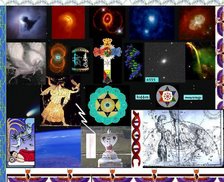
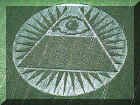
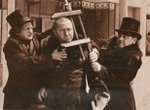
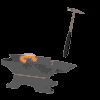


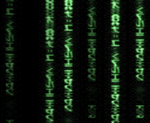
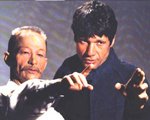


































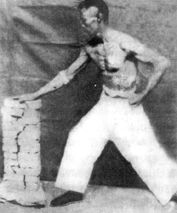



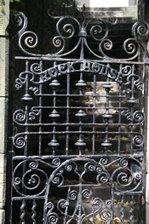

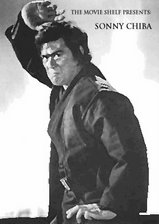







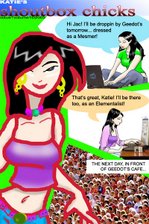
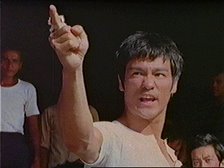








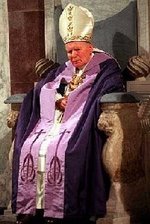































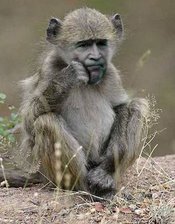












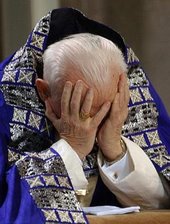







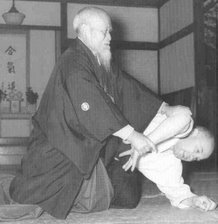

















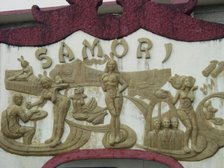
















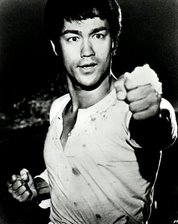

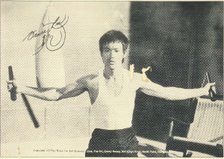


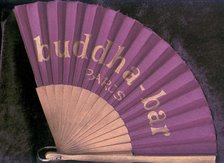
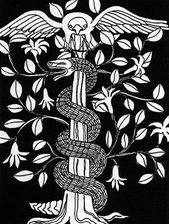
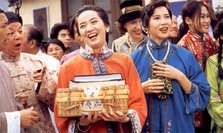

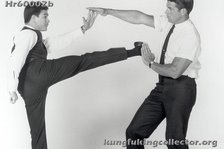
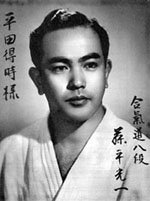



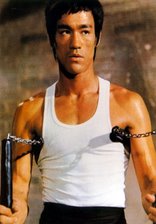
No comments:
Post a Comment